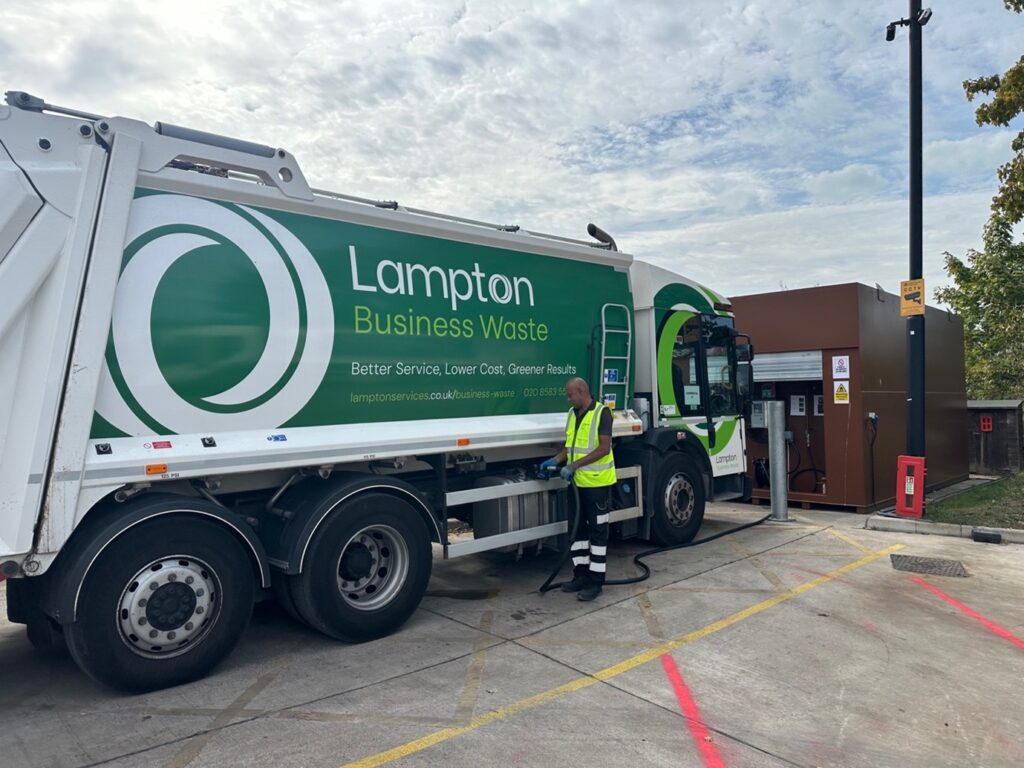Just because there are markets for poorer quality material from UK materials recycling facilities does not mean that MRF operators will be able to continue to producer lower quality material, a senior Welsh Government official has warned.
Explaining the Welsh Governments support for the collection of materials separately at the kerbside as opposed to sending them for sorting at MRFs Jasper Roberts, deputy director for waste and resource efficiency with the Welsh Government, said that the revised Waste Framework Directive was looking for high end quality.
Mr Roberts was speaking last week at the LARAC Welsh recycling officers conference in Caersws. He said that markets are very odd things, very segmented before explaining how the Welsh Government saw the market issues.
Yes, there are markets for selling lesser quality recycling, there are markets where people can go for sorted materials but it is hard to some extent to look at the markets for guidance. The Directive is quite clear that the quality spectrum should be at the high quality end.
Judicial Review
The LARAC conference discussed the Judicial Review over separate collection of recyclables – this is currently on hold while Defra and the Welsh Government respond to a claim that they have incorrectly interpreted the revised Directive by allowing the sorting of commingled materials at MRFs.
The claimants believe that MRF sorting generally leads to poorer quality material, a view explained later to the LARAC event by Andy Doran of aluminium recycling giant Novelis.
Mr Roberts said that he could not comment too much on the case as it was still being resolved. However, he reflected that government hasnt lost the Judicial Review yet. But, it is consulting on whether its interpretation is correct.
He explained that there is an ongoing debate about the correct legally compliant form of the regulation. And, the Welsh Government official offered a steer on what he thought of the direction and on the latest legal advice.
This is a very poorly drafted piece of legislation. On the question of separate collection our understanding is that there is an obligation on local authorities to collect specific waste, and including food waste, separately and if collected, not to mix it up again later.
This is subject to the derogation of TEEP technically, environmentally and economically practicable – and the provision of high quality recycling and if any local authority wants to use the derogations it will have to make its case.
And, Mr Roberts warned: For any local authority not approaching collection in this way, there will be a risk of challenge and of course legal uncertainty.
Funding
“For any local authority not approaching collection in this way, there will be a risk of challenge and of course legal uncertainty”
Jasper Roberts, Welsh Government
One consequence of the separation rule, he explained, would be that the Welsh Government would have difficulty in paying grant for services which are not compliant. Funding support in Wales to councils to make changes to their services in favour of kerbside sorting will including the principalitys Change Programme (see letsrecycle.com story).
However, if local authorities do want to change from MRFs, they do not need to do this overnight but will have to by 2015, the official explained. This would be reasonable in terms of economic feasibility, you can’t dump a fleet of lorries and equipment but I do believe that the direction of travel is towards separate collection.
He noted that he did not believe that separate collection would not be achievable on a county level, ie, a local authority saying it could only happen in parts of a county.
Mr Roberts said Wales had developed its policy position prior to the transposition which was that it was in broad support of separate collection and quality.
Asked by a recycling officer why the Welsh Government had actually opted to produce joint guidance with Defra when it favoured kerbside sorting, Mr Roberts commented: There are reasons why we do joint regulations, partly to make matters clear for the operating companies where boundaries may not exist for waste.
But, he emphasised: Our policy position remains clear we have always promoted separate collections because our evidence shows that it is a better option.
Mr Roberts also pointed to the working conditions found in some MRFs on the sorting lines which he described as an awfulness and that there was an issue with careers in MRFs.
Novelis
The case for the claimants in the Judicial Review, who broadly prefer kerbside sorting, was explained to the LARAC event by Andy Doran, senior manager for sustainability and recycling development for aluminium can recycler Novelis which has a plant in Warrington.
Mr Doran is also chair of the Resource Association and he had been in Wales the previous day for its Welsh launch. At the launch the association was praised for its forward thinking vision by the Welsh waste and recycling minister John Griffiths.
Mr Doran explained to the Welsh recycling officers event that Novelis is a global metal company that doesnt know the word waste and we make sheets of aluminium.
He said that the processing and quality of feedstock that is required is of the utmost importance to the company. We are trying to put a high level of recycling into our process which has the attendant recycling and carbon benefits.
And, he highlighted the problems that contaminated feedstock can bring and that the material usually came from MRFs. As a global company we buy materials, we have a plant in the UK and sourcing material is as important to us as a remanufacturer as having a labour force and a market for our products. The poorest supply we receive happens to be in the UK. We would really like to get more material from a home grown market, but we find that because of how that material is collected there are quality issues. There are cross contamination issues which cause complications downstream.
Mr Doran also cautioned that it was not just his industry that could be threatened by poor quality material: If I receive and continue to receive really, really poor material, and it is the same for paper and glass, we wont be here.
Focusing on the legislative side, he said that the revised Waste Framework Directive set out clearly what was required on separate collection and that high quality was largely ignored by some of the governments, in particular Defra. And, he hit out strongly at the Department over a lack of consultation. To rub salt in the wound, there was no consultation on the Defra statement which said that for the avoidance of doubt commingled recycling was acceptable.
Torfaen
Discussion followed on a number of points including how any changes to collection schemes could be implemented.
Roger Mills, LARAC Welsh representative and from Torfaen council, said that from a residents point of view they are not interested in how recyclables are collected. And, he said that while a collaborative change is needed to help people move to kerbside sort,100% clean feedstock isnt absolutely necessary. I dont know if reprocessors at the front end can find more ways to deal with contamination?
Mr Doran responded that the issue is high quality material for the market. The issue seems to be how that has been applied to commingling, the approach seems to come from the other direction, it [commingling] has been given a leg up in the equation. This interpretation seems to have turned it all around and said commingling is acceptable and practical which is not what the Directive intended.
He continued: It means fully commingled schemes are under threat. Fully commingled schemes which take in glass are facing an incredible challenge – if you look all around the EU you dont see these collection schemes.
Asked about how local authorities should approach the public if there were to be changes to the kerbside sorting sytem, Mr Doran who has previously worked for a local authority and chaired LARAC said: I would come at it from the perspective that we are a maturing society and industry looking to realign with this. What we should all be about is high quality materials.
Systems
LARAC chair Joy Blizzard, who was chairing the Caersws event, said: We have put systems in that people said would never work. It is not beyond wit of woman to change a recycling scheme and survive. I am absolutely convinced that people do care what happens to their recycling.
Related Links
With regards to new local authority contracts, Mr Roberts suggested that break clauses after three years would be advisable in terms of service provision.
Ironically, the final comment came from a Caerphilly delegate who said the council collected 7-8 tonnes a day with one vehicle now through commingled collection, and he couldnt see that happening with kerbside collection.








Subscribe for free